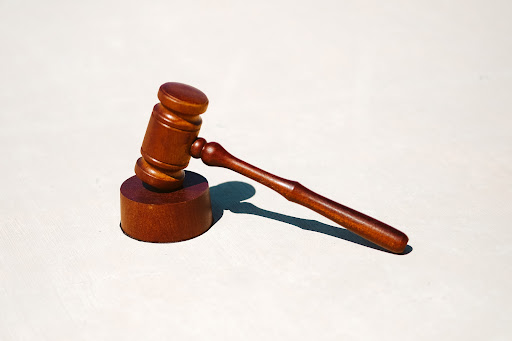Personal injury lawsuits provide legal recourse for people who have suffered harm or injury due to the negligence or wrongful actions of others. Understanding how these laws work is important if you intend to file a lawsuit.
You may be entitled to compensation if you’ve been involved in an accident resulting from the negligence of others. To achieve the desired results, call the best personal injury lawyer in Houston for legal counsel.
Understanding Personal Injury Law
Personal injury law covers a wide range of cases related to physical, emotional, or financial harm. Common injury lawsuits involve:
● Car accidents
● Slip and fall accidents
● Medical malpractice
● Product liability, and workplace accidents, among others.
To establish a strong personal injury claim, plaintiffs must demonstrate the existence of various elements, including duty of care, breach of duty, causation, and damages.
Personal Injury Lawsuits – The Legal Process
The litigation of a personal injury lawsuit begins with an initial consultation with an attorney. During this meeting, the attorney assesses the merits of the case and recommends the best course of action.
If the client decides to pursue legal action, the attorney initiates an investigation, collects evidence, and consults with experts to strengthen the case. Negotiations and settlement attempts may follow to reach a fair compensation agreement without going to trial.
However, if a settlement cannot be reached, the attorney proceeds with filing a lawsuit. This is followed by pre-trial proceedings, including discovery and motions, leading to the trial process. If necessary, there are post-trial options and the possibility of appeals.
Damages and Compensation
The injured party is awarded damages if their claim is successful. Personal injury damages can cover economic and/or non-economic losses. The former covers medical expenses, lost wages, and property damage, while the latter covers pain and suffering, emotional distress, and loss of consortium.
Punitive damages may sometimes be awarded to punish the at-fault party for their reckless or malicious behavior. Typically, the severity of injuries, the impact on the victim’s life, and the defendant’s level of negligence influence the compensation amount.
Role of Insurance Companies
Dealing with insurance companies is a common aspect of personal injury cases. Following an accident, it’s important to report the incident to your insurance provider and cooperate with their investigation.
Be aware that insurance companies often aim to minimize their financial liability. They employ various tactics to achieve this goal, including offering low settlements or denying the claim. Seeking legal representation is the best way to protect your rights and get fair compensation.
Hiring a Personal Injury Attorney
Working with a lawyer offers numerous benefits. They understand the complexities of personal injury law, can effectively navigate the legal process, and negotiate with insurance companies on your behalf. Consider their experience, expertise, track record, and communication skills when hiring a lawyer.
Many personal injury attorneys work on a contingency fee basis. Simply put, they receive a payment if they win the case. This approach makes legal representation more accessible.
Time Limitations and Statute of Limitations
Time limitations play a crucial role in personal injury lawsuits. Each jurisdiction has a statute of limitations, which sets the legally defined period for filing a lawsuit. It is important to know the applicable statute of limitations for your case. Failing to file within the specified timeframe can result in losing the right to pursue compensation.
Alternatives to Lawsuits
Here are the alternatives to personal injury lawsuits:
Mediation
Mediation involves a neutral third party, the mediator, who facilitates communication and negotiation between the two parties. It encourages open dialogue and the exploration of mutually acceptable solutions.
Arbitration
Arbitration is a private and less formal process that resembles a trial but is less complex and costly. An arbitrator, chosen by both parties, acts as a judge and renders a binding decision. The process is faster and more flexible than traditional litigation.
Settlement Conferences
A settlement conference is an informal meeting where both parties, their attorneys, and a neutral facilitator discuss the issues to reach a fair settlement. This option provides an opportunity to address concerns, clarify positions, and explore potential resolutions.
Negotiation
Negotiation involves direct discussions between the parties to settle without involving a third party. It allows for flexibility and maintains control over the outcome. Negotiation can be informal or guided by legal representation.
Alternative Dispute Resolution (ADR) Programs
Some jurisdictions offer ADR programs such as mini-trials, summary jury trials, or neutral evaluations. These processes provide structured frameworks for resolving disputes efficiently and effectively, often resulting in mutually agreeable settlements.
While personal injury lawsuits remain viable, exploring alternative methods can lead to more satisfactory outcomes, reduced costs, and quicker resolutions. It’s advisable to consult with an experienced attorney to determine the most appropriate course of action based on the specific circumstances of each case.

